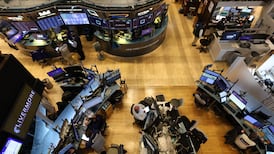MITCHELLS & BUTLERS, the pub and restaurant group, has blamed a rainy April and exceptional costs for a shrinking of interim pre-tax profits.
The owner of the All Bar One, Toby Carvery and O’Neill’s chains, paid £26 million in one-off costs in the first half, including £6 million in advisory and legal fees to fight off last year’s takeover approaches from Piedmont, the investment vehicle of the company’s largest shareholder Joe Lewis.
The exceptional costs knocked pre-tax profits down £1 million year-on-year to £42 million, in spite of solid growth in both food and drink sales. Revenues rose from £946 million to £969 million.
However, the group said its year-long search for a new chief executive was almost at an end, with its shortlist whittled down to two candidates.
“It’s about getting the right person in place and I believe that we are almost there,” Bob Ivell, M&B executive chairman, said. “But I don’t think that the business has suffered from not having a [permanent] chief executive.”
Since the ousting of Adam Fowle as chief executive in March last year, the pub and restaurant group has struggled to find a replacement. An interim chief executive, Jeremy Blood, stepped down in October.
The company has experienced more than 30 boardroom changes over the past three years, and in November rejected two takeover approaches from Piedmont, which owns 25.7 per cent of the group.
Irish investors John Magnier and JP McManus also hold a stake of more than 20 per cent through their Elipda investment vehicle.
M&B, which runs more than 1,600 restaurants and pubs across the UK, reported first-half like-for-like sales up 2.7 per cent year on year, with food sales up 3.4 per cent and drinks up 2.2 per cent.
The sales growth was driven by increases in the average amount spent on food per head of 4.2 per cent – which M&B attributed to more consumers opting to eat a dessert after their main course – and average drink spend up 6.2 per cent.
Operating margins slipped back 0.7 percentage points to 14.2 per cent, however, after the group was forced to absorb a £13 million year-on-year increase in energy and food costs. – (Copyright The Financial Times Limited 2012)









